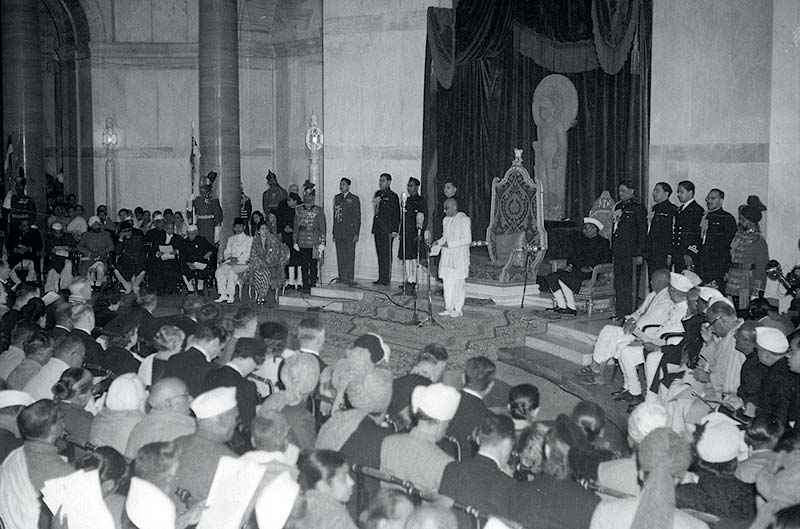Government of India
 | border = federal
| image = Government of India logo.svg
| image_size = 190px
| caption = Government of India's Logo with wordmark crested with the emblem of India on the left.
| date_established = Current form: (see: Constitution of India)
| date_dissolved =
| state = Republic of India
| country =
| polity =
| leader_title = President of India
() (de jure)
| border = federal
| image = Government of India logo.svg
| image_size = 190px
| caption = Government of India's Logo with wordmark crested with the emblem of India on the left.
| date_established = Current form: (see: Constitution of India)
| date_dissolved =
| state = Republic of India
| country =
| polity =
| leader_title = President of India
() (de jure) Prime Minister of India (Narendra Modi) (de facto) | main_organ = Union Council of Ministers | ministries = Lok Sabha | budget = | address = Secretariat Building, New Delhi | url = }}
The Government of India (, legally the Union Government or the Union of India or the Central Government) is the national authority of the Republic of India, based in New Delhi, India's capital city. The government is led by the president of India (currently ) who as head of state holds formal executive power, and thus (following parliamentary elections) appoints, as head of government, the prime minister, as well as other ministers. The government has been formed by the The prime minister and ministers are members of parliament; they also belong to the Union Council of Ministers, the peak decision-making committee of which is the Indian cabinet.
The government's formal seat is at Parliament House in New Delhi. It has three primary branches: the legislature, the executive, and the judiciary. The Constitution of India vests legislative power in the bicameral Parliament of India, executive power (through the President) in the Union Council of Ministers, and judicial power in the Supreme Court of India, with the president as head of state. It is a derivation of the British Westminster system, and has a federal structure.
The Union Council of Ministers is responsible to the lower house of parliament, as is the Cabinet in accordance with the principles of responsible government. As is the case in most parliamentary systems, the government is dependent on Parliament to legislate, and general elections are held every five years to elect a new Lok Sabha. The most recent election was in 2024.
After an election, the president generally selects as Prime Minister the leader of the party or alliance most likely to command the confidence of the majority of the Lok Sabha. In the event that the prime minister is not a member of either house of parliament upon appointment, they are given six months to be elected or appointed to parliament. Provided by Wikipedia